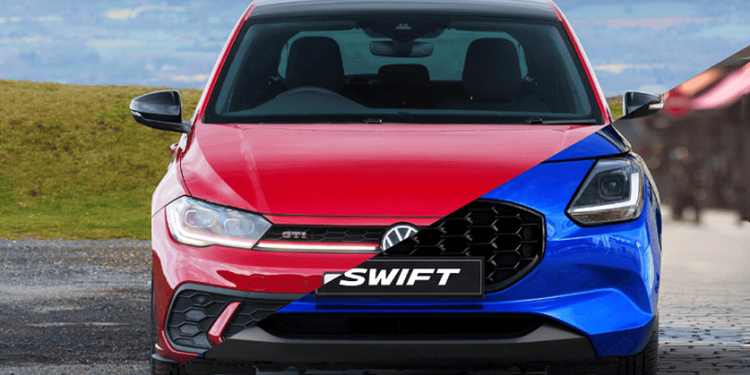The battle for second place in South Africa’s car sales is heating up, with Suzuki challenging Volkswagen’s long-held position.
Automotive Sales Competition South Africa: Suzuki Gaining on Volkswagen
A compelling rivalry is unfolding in the Automotive Sales Competition South Africa. While Toyota comfortably maintains its leading position, the contest for the second-best-selling brand is becoming increasingly intense, with Suzuki rapidly closing in on Volkswagen (VW), a long-time incumbent.
Volkswagen’s Past Dominance and Current Struggles
Volkswagen has enjoyed a lengthy reign as the second-largest car seller in South Africa. Iconic models like the Beetle, Golf, Kombi, and Passat built a strong brand image. However, VW’s dominance is now under threat. Several factors contribute to this shift:
⦁ Economic Headwinds: The depreciation of the Rand against the Euro has made imported vehicles more expensive, impacting all importers, but particularly those sourcing from Europe, like VW.
⦁ Shifting Brand Strategy: Globally, Volkswagen has aimed to position itself as a more premium brand, focusing on higher profit margins rather than sheer sales volume. This was expressed by VW’s CFO, who stated goals focusing on quality over quantity.
⦁ EV Investment Challenges: VW’s significant investment in its ID. electric vehicle range has not yet yielded the anticipated sales results, impacting the company’s overall financial performance.
In South Africa, Volkswagen Sales Figures peaked in 2021 and have since stagnated. The more affordable Polo Vivo significantly outsells VW’s pricier models, suggesting a mismatch between the company’s global strategy and the needs of the South African market.
Suzuki’s Rise: A Focus on Affordability
Suzuki entered the South African market in 2008. Initial progress was gradual, but the brand has experienced substantial growth, particularly since 2017. Key factors driving Suzuki’s success include:
⦁ Value for Money: Suzuki has consistently offered vehicles at competitive prices, targeting the budget-conscious segment of the market.
⦁ Toyota Partnership: The strategic alliance with Toyota, a brand renowned for reliability, has undoubtedly enhanced Suzuki’s image.
⦁ Indian Production: Manufacturing and importing a significant portion of its vehicles from India allows Suzuki to maintain lower prices.
⦁ Targeted Marketing: Reaching out to new customers.
Suzuki Sales Figures have repeatedly broken records, surpassing 5,000 monthly registrations and achieving over 50,000 annual sales for the first time.
The Narrowing Sales Gap
The shrinking difference between VW and Suzuki’s sales figures clearly demonstrates the evolving market:
⦁ 2020: Suzuki sold 16,527 units, while the VW Group (VW + Audi) sold 63,481.
⦁ 2021: Suzuki sold 27,583 units, while the VW Group sold 71,577.
⦁ 2022: Suzuki sold 47,178 units, while the VW Group sold 69,801.
⦁ 2023: Suzuki sold 49,436 units, while the VW Group sold 67,456.
⦁ 2024: Suzuki sold 59,574 units, while the VW Group sold 66,439.
The gap has narrowed dramatically, from over 46,000 units in 2020 to under 7,000 in 2024.
Moreover, VW’s figures include Audi sales, making Suzuki’s progress even more significant. These, and other, market trends can be tracked by browsing general automotive industry topics.
The official sales figures, as reported by organizations like the National Association of Automobile Manufacturers of South Africa (NAAMSA), will be key indicators to watch. It is likely that there will also be involvement from the Department of Trade, Industry and Competition.
Could 2025 be the year Suzuki overtakes VW in South Africa? Share your predictions below!





